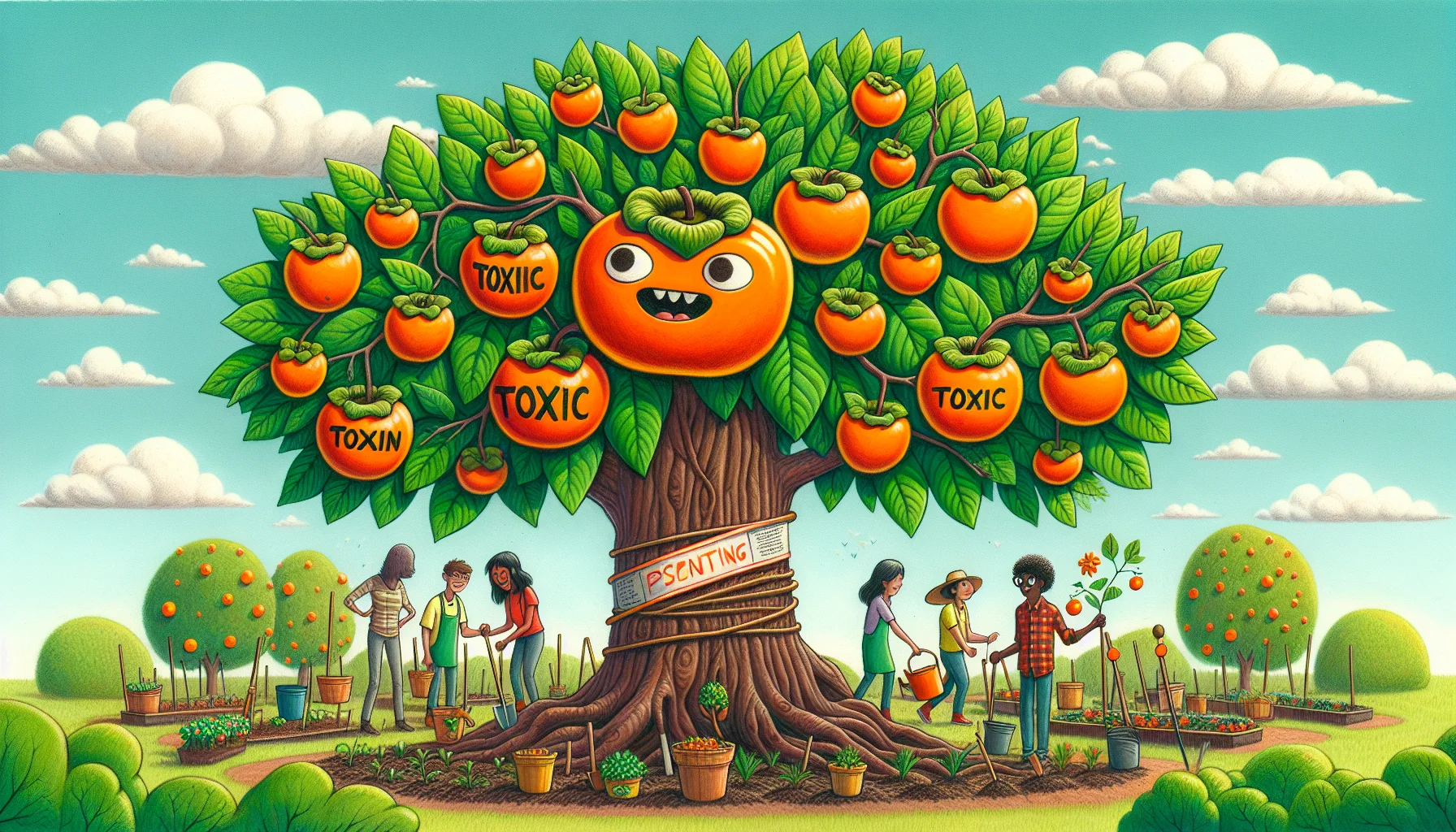Persimmon skin toxic Quiz
Test Your Knowledge
Question of
Is Persimmon Skin Toxic?
There are many myths and misconceptions surrounding the consumption of persimmon skin, with some people believing it to be toxic. However, scientific evidence does not support the claim that persimmon skin is toxic to humans. In fact, the skin of persimmons is rich in fiber and nutrients, much like the skin of many other fruits. While it is true that persimmons contain tannins, which can be astringent and unpleasant in taste if the fruit is not fully ripe, these compounds are not harmful and are significantly reduced in ripe fruits. It's also important to note that, like with any fruit, washing the skin before eating is recommended to remove any pesticides or contaminants. Ultimately, the choice to eat persimmon skin comes down to personal preference, but fears of toxicity should not be a concern.
Understanding Persimmons: Varieties and Characteristics
Persimmons are a unique and flavorful fruit that come in various types, each with its own distinct characteristics. The two main categories are astringent and non-astringent, with the most popular varieties being Hachiya and Fuyu. Hachiya persimmons are heart-shaped and have a vibrant orange color. They are astringent and must be fully ripe to eat, as their unripe pulp is very bitter. When ripe, their flesh becomes soft and jelly-like, ideal for baking and smoothies. On the other hand, Fuyu persimmons are non-astringent, squat, and can be eaten while still firm. They are sweet, with a crisp texture similar to that of an apple, and can be consumed with or without the skin, unlike Hachiya persimmons whose skin is often removed before eating. Other varieties include the chocolate persimmon, which has a brownish flesh with a sweet, spicy flavor, and the Tanenashi, which is cone-shaped and known for its smooth texture. Each variety offers a unique taste and texture, making persimmons a versatile fruit for various culinary uses.
The Nutritional Benefits of Persimmons
Persimmons are a highly nutritious fruit that offer a wealth of benefits for your health. Rich in vitamins and minerals, they are particularly noted for their high vitamin A and vitamin C content, which are essential for immune function and skin health. The fiber in persimmons, including the skin, is beneficial for digestive health, helping to prevent constipation and promote a healthy gut microbiome. Furthermore, the antioxidants found in persimmons, such as beta-carotene and lycopene, help to combat oxidative stress and reduce inflammation, contributing to the prevention of chronic diseases. Including persimmons in your diet can be a delicious way to boost your nutrient intake and support overall health.
How to Safely Consume Persimmon Skin
- Start by selecting ripe persimmons, as the skin of unripe fruit can be overly astringent and unpleasant to eat.
- Wash the persimmons thoroughly under running water to remove any dirt or residues. It's important to clean the skin properly since it will be consumed.
- Use a soft produce brush to gently scrub the skin if necessary, ensuring all external contaminants are removed.
- Pat the persimmons dry with a clean cloth or paper towel to remove any excess water.
- If the skin seems too thick or tough, consider peeling a small portion to make it easier to eat. However, many people enjoy the texture and nutrients the skin adds to the fruit.
- For a better eating experience, you can chill the persimmons in the refrigerator before consumption. This can make the skin feel more refreshing and slightly firm to bite into.
- When eating the persimmon, if you encounter any hard or fibrous parts in the skin, it's best to remove and discard these.
- Remember, consuming the skin of the persimmon can add fiber to your diet, but it's important to listen to your body. If you find the skin hard to digest, you may choose to consume persimmons without it.
Common Myths About Persimmon Skin
Many people believe that the skin of persimmons is toxic and should be avoided, but this is actually a myth. Scientific studies and nutritional experts have shown that persimmon skin is not only safe to eat but also contains a high concentration of nutrients and fiber. The misconception may stem from the astringent taste of certain unripe persimmons, which is due to tannins. However, these tannins are not harmful and decrease significantly as the fruit ripens. In fact, consuming the skin of persimmons can add to the fruit's health benefits, including improved digestion and the addition of antioxidants to one's diet. Therefore, washing the fruit thoroughly and enjoying it with its skin is both safe and beneficial.
Gardening Tips for Growing Persimmons
Growing persimmons in your home garden can be a rewarding endeavor, provided you give them the care they need to thrive and produce healthy fruits. First and foremost, persimmon trees prefer well-draining soil that is slightly acidic. Before planting, it's a good idea to test your soil's pH and amend it as necessary to achieve a pH range of 6.0 to 6.5. When it comes to watering, young trees require consistent moisture to establish their root systems, but once established, they are quite drought-tolerant. However, during dry spells, it's important to water them deeply to encourage deep root growth and healthy fruit development. Pest management is also crucial for persimmons. Common pests include fruit flies, aphids, and mealybugs. Regular monitoring of your trees can help you identify pest problems early. Implementing integrated pest management practices, such as encouraging beneficial insects that prey on these pests, can help keep your persimmon trees healthy without the need for chemical interventions. Additionally, proper pruning not only helps to maintain the shape and structure of your persimmon trees but also improves air circulation, reducing the risk of fungal diseases that could affect the fruit's skin and overall health. With the right care, soil conditions, and pest management strategies, you can enjoy bountiful harvests of delicious persimmons from your garden.












